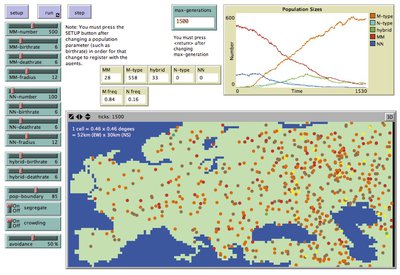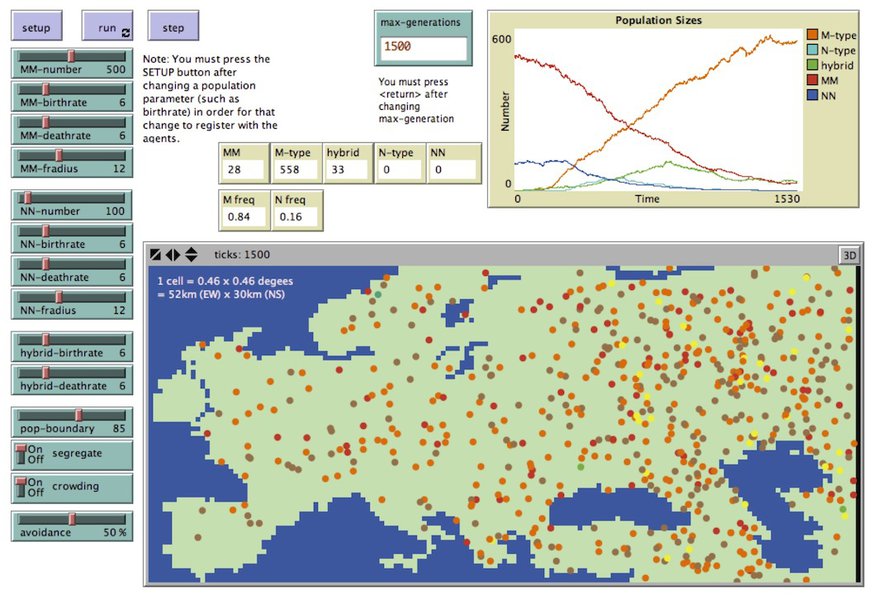Hominin ecodynamics v.2 (1.0.0)
hominin_ecodynamics2.0 is designed as an experimental laboratory to explore the dynamics of biobehavioral interactions between two populations, and their genetic and demographic consequences. Specifically, the model is designed to study the effects of differing initial population sizes, different interaction distances, mating restrictions, and different fitness on the demography and spatial distributions of the original two populations and hybrids.

Release Notes
In version 1, each agent has a pair ‘chromosome’ each with a single allele. In version 2 (this version), chromosomes have 10 or more alleles.
Associated Publications
Barton, C. Michael & Julien Riel-Salvatore (2012). Agents of change: modeling biocultural evolution in Late Pleistocene western Eurasia. Advances in Complex Systems. DOI: 10.1142/S0219525911003359.
This release is out-of-date. The latest version is
1.1.0
Hominin ecodynamics v.2 1.0.0
hominin_ecodynamics2.0 is designed as an experimental laboratory to explore the dynamics of biobehavioral interactions between two populations, and their genetic and demographic consequences. Specifically, the model is designed to study the effects of differing initial population sizes, different interaction distances, mating restrictions, and different fitness on the demography and spatial distributions of the original two populations and hybrids.
Release Notes
In version 1, each agent has a pair ‘chromosome’ each with a single allele. In version 2 (this version), chromosomes have 10 or more alleles.

